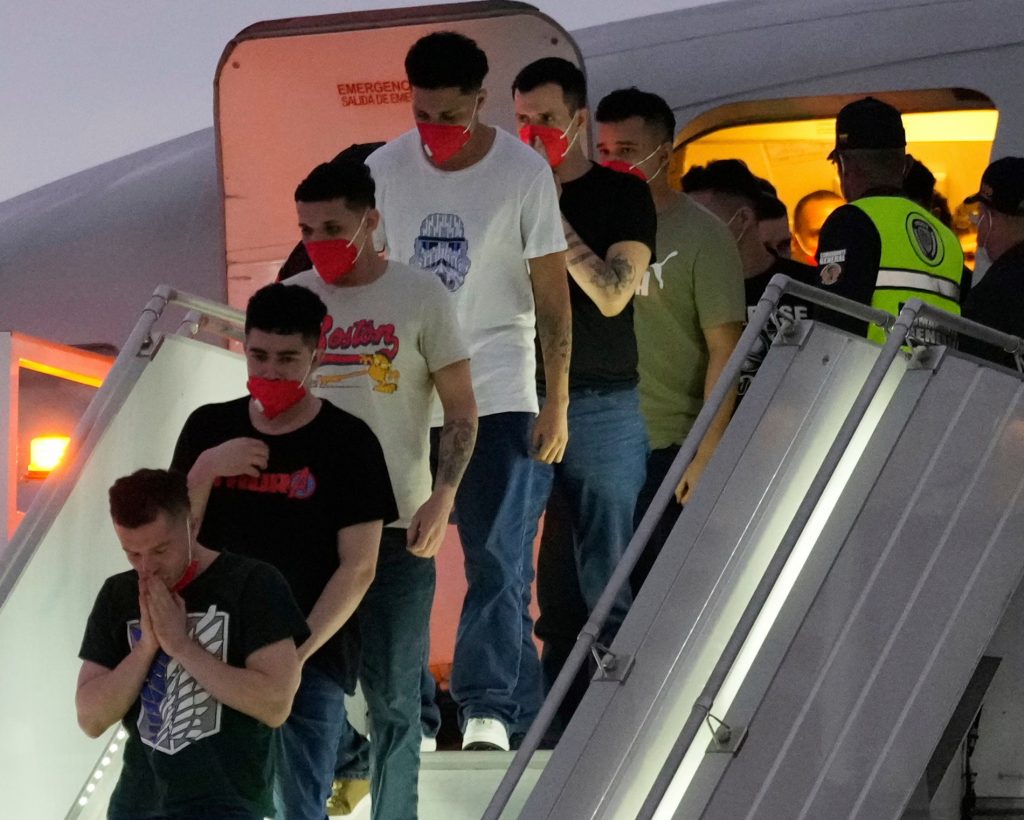Venezuela has begun a full investigation into reports from 252 migrants who said they were tortured inside El Salvador’s CECOT prison. These migrants were deported from the United States under a strict migrant policy that began during former U.S. President Donald Trump’s administration. Upon their return, they shared shocking stories of physical and sexual abuse, starvation, and inhumane treatment inside the prison.
The country’s attorney general, Tarek William Saab, presented video testimonies and photos of the alleged abuse during a press conference in Caracas. Many of the returnees had visible injuries, including bruises, rubber bullet wounds, and in one case, a split lip. One of the migrants, 32-year-old Andry Hernandez Romero, said he was sexually abused and that they were treated as if they were not human.
The migrants described being kept in overcrowded, dark cells without sunlight or fresh air. They said they were given rotten food and dirty water, had no access to lawyers or family, and feared for their lives. Their last known public appearance was in photos shared by the Salvadoran government, showing them shackled and with shaved heads.
Back home in Venezuela, many of the migrants have not yet been reunited with their families. They are undergoing medical tests, being issued new ID cards, and speaking with prosecutors about their experiences. One mother, Mercedes Yamarte, said she had waited over four months to hear her son’s voice. On Monday, she finally got a call: “Mom, it’s Mervin.”
The migrants were originally deported to El Salvador in March after being labeled gang members by U.S. authorities. Trump had invoked wartime laws that allowed deportation without court hearings, which drew international criticism.
Now, Venezuela plans to bring a case against El Salvador’s President Nayib Bukele and others at the International Criminal Court (ICC) for alleged crimes against humanity. Saab has also called on the UN Human Rights Council to take action.
President Nicolas Maduro accused Bukele of trying to block the migrants’ return at the last minute. He claimed Bukele even had a vehicle placed on a runway to delay a plane carrying the migrants.
Meanwhile, opposition leader Maria Corina Machado referred to the entire situation as a “prisoner of war exchange.” She criticized the swap deal, which involved the release of 10 Americans or U.S. residents in exchange for the 252 Venezuelan detainees.
Ironically, Venezuela itself is under investigation by the ICC for similar human rights abuses, including torture, unlawful arrests, and denial of legal access. Hundreds of Venezuelans are currently imprisoned for political reasons, according to rights group Foro Penal.
This ongoing crisis highlights not only the complex geopolitical relationships involved in migration but also the urgent need for accountability when human rights are violated.

